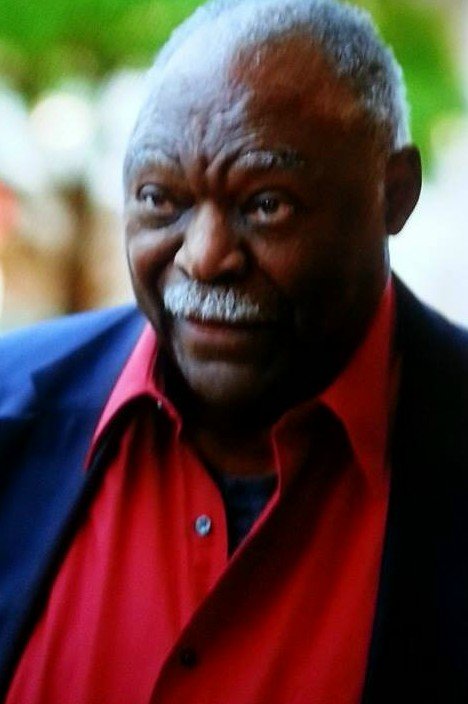How to Make Money When You Are Unemployed


Becoming a Consultant
I became a consultant by accident. That was one of the best life-choices that I made in my entire business career. During a twenty-year career as an independent consultant I achieved several important goals. First I was free to choose my own clients. Secondly I traveled half-way around the world at my client’s expense, and thirdly, I made a significant impact on several large and small companies. Some of those companies, I saved millions of dollars.
What does that mean to you? It means a great deal if you are considering becoming an independent consultant. I can assure you it is a good life filled with freedom, travel, and rewards if you think and act strategically. If you have developed a significant amount of expertise and specialized knowledge in just about any area, then it may be time for you to consider “consulting” as the next logical step in your career.
In the next few paragraphs, I will share the story of how I accidentally became an independent consultant and some important things I learned along the way.
In 1980, while working as a Senior Software Product Manager in Digital Equipment Corporation’s (DEC’s) Large Computer Group, I had a major, life altering epiphany. I saw clearly, perhaps for the first time, that climbing the corporate ladder was not a healthy, life affirming, or viable pursuit for me. As part of that epiphany, I realized that financial independence was a much more rewarding pursuit as well as the highest use of my time.
One of the first stages of my now enlightened quest was a trip to a major conference of Software Industry Executives. At that conference I was fortunate enough to spend some up close and personal time with several CEO’s -- the movers and shakers of large computer software companies. I came away from this learning experience with several lessons learned. Some of them you can relate to.
***Lessons Learned: I realized I was as smart as or smarter than many of the “high-level” people I met****
I learned that there were only three major goals for me
o To be in control of my own destiny.
o To have absolute control over how I spent my time
o To have absolute financial independence
Is Consulting For You?
Have you stepped back, long enough from your busy life to assess where you are going with your career and your lifestyle and whether that destination is healthy or life=affirming. Or is it a dead-end, filled with regrets, illness, and no fun?
My first step on the path to financial independence was taking a job as a VP of Marketing/Sales at a small software products company. The company had about $200,000 in revenue and employed nine people. In one year we took the revenue to $300,000 positioning the company for revenue of $ 1million, the following year.
The CEO said he had the same goal as me (and we could do it together). We’d build the company up, sell it and retire to our respective corners and write best sellers. I believed him until he refused to give me stock or any kind of equity position in the company. That is when I could see clearly that he had lied.
Another lesson learned -- be careful who you trust and what you can trust them to do
There were some signals I should have seen along the way. It pays to pay attention, an important lesson for you.
Take the time to see the context in which your opportunity presents itself. I should have paid more attention to the fact that (1) his wife worked at the company, (2) he had two company cars (one, his dream sports car) and (3) he and his wife were taking home about $80,000 annually (not bad for the early 80’s). I should have seen that this was his little fiefdom and he wasn’t about to share it with anyone.
Now much wiser, I left that company to pursue a software publishing venture which promised an eventual spin-off of my own company. It took less time to find out that the company was very flaky. And the guy running it was flaky and not nearly as smart as he thought he was.
It took only a year to come to terms with the flakiness of this venture.

I Became an Independent Consultant
From this foray into destiny I was left with a small office, telephone and a desk. That is the instant in time that I became an “Independent Consultant.”
What to do now? After some false starts, I found a partner and we decided to buy a business with some savings we had. While the business looked attractive, we could never get clear financial statements from the owner. Not to be discouraged, I incorporated as “Management Systems Group, Inc.”— a company destined to reshape the business world (not really).
After six months of trying unsuccessfully to get consulting projects from my former employer, Digital Equipment Corp., I had only one nibble, but no business.
Discovering the Seminar Business
Just as I was about to close the doors of Management Systems Group a seminal idea led to a defining moment in my life as an independent consultant seeking financial independence.
The idea came in a flash -- What about the “Seminar Business”?
I looked closely at the seminar business and I liked what I saw. After reading most of the seminar brochures I had received over the years in the mail, I had another epiphany – the seminar business is infinite.
I theorized that the seminar business is infinite because people are unwilling, or are unable (because of TV) to read – they need someone to read and present information to them.
Another lesson learned -- no matter how bad it gets or seems, always listen for those life-changing epiphanies, they will eventually find you.
I looked at my previous experience presenting to large and small groups and tentatively put together a seminar based on my experience with third party software deals. While reading a computer industry trade journal, I found a potential customer at Data General (DG), a spin-off company from DEC.
We met for a drink, after work. We mutually agreed that he didn’t need my seminar. During the ensuing discussion he expressed the need for another seminar “Marketing 101 for New Marketers.”
Lesson Learned -- “The selling doesn’t start until the customer says no.” --The words of Thomas Watson, Sr. the founder of IBM.
The next morning, I met with his boss and received a contract to deliver a seminar in two months. In spite of the fact that I was dead-broke, I went home and began feverishly developing a four-day seminar called “Marketing for Non-Marketers” -- all about computer industry marketing issues and practices.

Seminar Success
I was quite successful for a year. When I got together with DG’s in-house training manager, I was surprised by how helpful and supportive, he was. After delivering the first two four-day seminars, we cut the length to two days and targeted it for Development Engineers. The focus of the seminars shifted to that of a team building process for Engineers and Marketing people to understand each other. The Development people needed to know Marketing was not an exact science, but can still make a significant contribution to product development. Marketing needed to know that the more precise, the clearer product information, the better life is for Development.
I pitched the two-day seminar to an old friend in DEC development. He bought the seminar for his group. I finally got some business from DEC.
Lesson Learned -- Get the potential customer to articulate his need (his problem).Focus on serving that need. Give him what he needs, not what you want to sell
While looking for other opportunities, I saw an International Data Corp (IDC) advertising insert in Fortune Magazine.
I made an offer to joint venture with IDC presenting my “Third Party Software Acquisition,” which I thought was a perfect match for IDC’s customer base. After contacting, Nancy Scull, head of the consulting group (lunch), she informed me that IDC did not do seminars as I had envisioned.
During a follow up call, Nancy asked if I would do some “consulting” as a subcontractor to IDC. A week later, I was on a plane to Miami with Nancy to sell the second phase of a computer acquisition project for Ryder Corp. On the plane, as a kind show off gesture, I worked out a client strategy on the back of an envelope. Nancy presented my ideas to the client and IDC won phase two of the project, which I worked on for two months.

Lesson Learned – joint venturing with a larger company solves the marketing problem and project funding issues. It also solves the credibility and name recognition issues with potential clients.
Winning the Ryder project meant that my independent consultant career was off and running;
The Lessons (which I have highlighted) are the key takeaways from this article. They are some critical success factors to becoming a successful, impactful independent consultant.
PS – This article is based on a talk I was invited to give to a graduating class of MBA’s at Boston University. They never invited me again, I guess because I told the truth.
Follow me if you dare, for business insights, Success tips, and other wisdom from 40 years in Corporate America. I am here to serve YOU!!!
